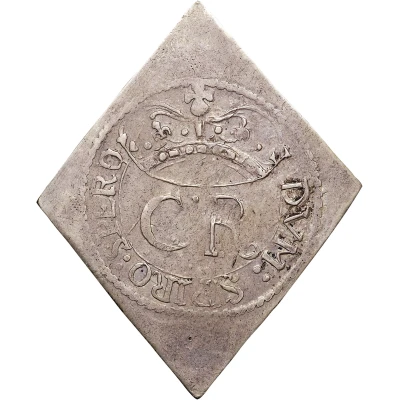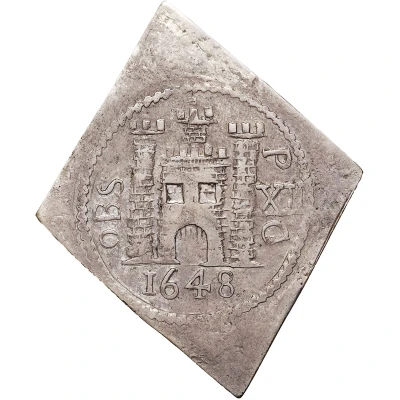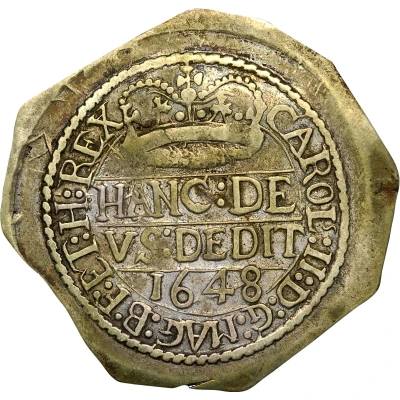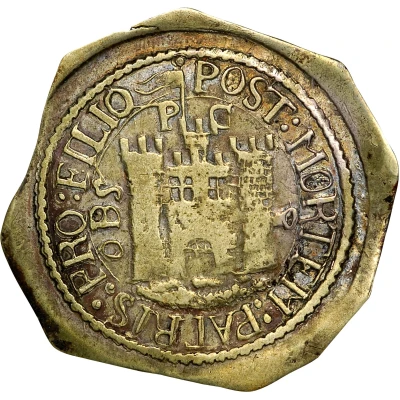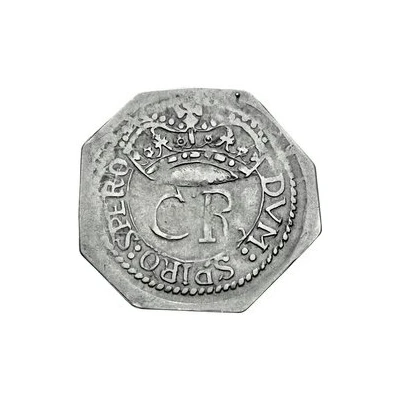
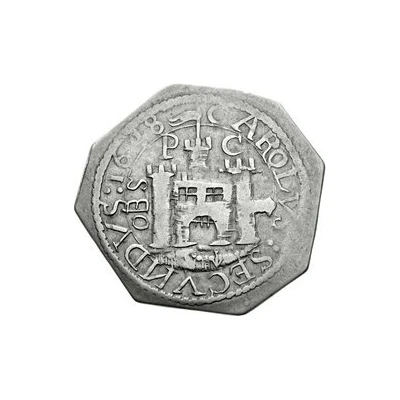

© Classical Numismatic Group, Inc.
1 Shilling - Charles II Pontefract siege coinage
1648 year| Silver | 4 g | 30 mm |
| Issuer | England (United Kingdom, British Overseas Territories and Crown Dependencies) |
|---|---|
| King | Charles I (1625-1649) |
| Period | Commonwealth (1649-1660) |
| Type | Standard circulation coin |
| Year | 1648 |
| Value | 1 Shilling (1⁄20) |
| Currency | Pound sterling (1158-1970) |
| Composition | Silver |
| Weight | 4 g |
| Diameter | 30 mm |
| Shape | Octagonal (8-sided) |
| Technique | Hammered |
| Orientation | Coin alignment ↑↓ |
| Demonetized | Yes |
| Updated | 2024-10-08 |
| Numista | N#16835 |
|---|---|
| Rarity index | 100% |
Reverse
Castle gateway with flag dividing P C above, legend to left and cannon to right, all surrounded by legend and date.
Script: Latin
Lettering:
CAROLVS : SECVNDVS : 1648
OBS P C
Translation:
Charles the Second
Pontefract Castle besieged
Comment
House of Stuart (1603-49), Charles I (1625-49), Siege coinage of the English Civil War (1645-49), bearing the name of Charles II.Struck on hand cut flans within the besieged castle at Pontefract, West Yorkshire. Despite bearing the date 1648, these pieces are believed to have been produced after the execution of Charles I on 30th January 1649, in support of his son who would go on to become King Charles II.
Interesting fact
One interesting fact about the 1648 Charles II Pontefract siege coinage silver shilling is that it was minted during the English Civil War, specifically during the siege of Pontefract Castle, which was a key stronghold of the Royalist forces. The coin was minted using silver plate that was donated by local residents to support the Royalist cause, and it features a unique design that includes a crowned bust of Charles II on one side and a shield with the Royal arms on the other. The coin's design and mintage process were overseen by the Royalist military leader, Prince Rupert, who was known for his military prowess and his interest in numismatics. Despite being minted in a time of war and turmoil, the Pontefract siege coinage shilling is considered a rare and valuable collector's item, with some examples selling for thousands of pounds at auction.
